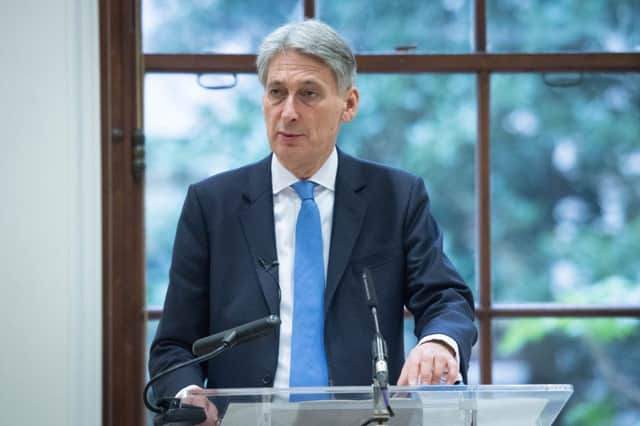Chancellor's suggestion a real cause for concern


The danger to the farming industry lies in the fact that what the Chancellor is saying makes economic sense. The fishing industry voted for Brexit to get rid of foreign boats fishing in British waters, but it is dwarfed economically by the financial services sector and indeed other parts of the economy. This is a clear case of the economic ends justifying the means. Outside the fishing industry most people would see that as a logical, if tough and even unfair, suggestion by the politician responsible for the UK’s economic well-being.
Move this problem to another area – agriculture and food – and the threat is clear. We have had assurances that standards in UK food and farming will not be undermined by imports, but ultimately decisions will be taken on political and financial grounds. The government is desperate for trade deals with countries outside the EU. If those depend, for example, on accepting South American beef, southern hemisphere dairy products or pork and poultry from Asia fed on GM diets in conditions not acceptable here that could be deemed a price worth paying.
Advertisement
Advertisement
Hopefully this is wrong and the government may have more principle. That would however be an example of hope over expectation. The farming and food industry case is that consumers want their food to have provenance and short supply chains. That is true, but the question has always been the level of premium they will pay for that. The other claim is that food and farming are big employers. That is true, but it is a claim that applies more to the food industry than farming.
While the food industry pays lip service to local sourcing, it could operate equally well with cheaper, imported ingredients. Sectors already do this, and farmers across the UK cannot depend on the food industry fighting their corner when post-Brexit trade arrangements are being made. That may not apply here, but decisions will be taken in London, and farmers cannot risk under-estimating the government’s determination to secure early trade deals to boost confidence in Brexit. This is why it is important that we are able to continue supplying the EU-27 market, which demands the higher standards we can deliver.
Transition period or not after we leave the EU in March 2019, the government is promising to scrap up to 50 EU regulations the next day. It sees this as a way to show people that Brexit will deliver practical change. The list that has emerged includes things like state aid and competition rules and tendering procedures – but, to date, nothing for agriculture. This is ironic, given that it was frustration over red tape that prompted many farmers to vote leave.
There is certainly no shortage of possibilities in agriculture. The government could, for example, scrap compulsory ID for sheep, which was an EU regulation it opposed; it could scrap some of the red tape around greening, or ease back on compliance inspections. All these would send a powerful sign to farmers that things are going to be different as a result of Brexit.
Advertisement
Advertisement
While that would be a good outcome it is hard to see it happening. To date everything the government has said about agriculture points to more and not less regulation. The acid test is the difference in how existing EU regulations are implemented here compared to other EU member states. The most obvious example is what we in Northern Ireland see south of the border every day. The problem for farmers is that new UK rules will be drafted, implemented and policed by the same officials that for years have wrapped red tape around the CAP. The only difference is that they will no longer be able to lay the blame at the door of Brussels and the European Commission.